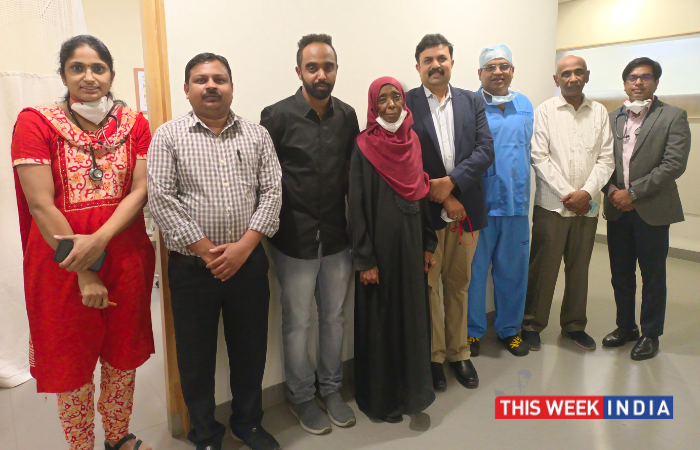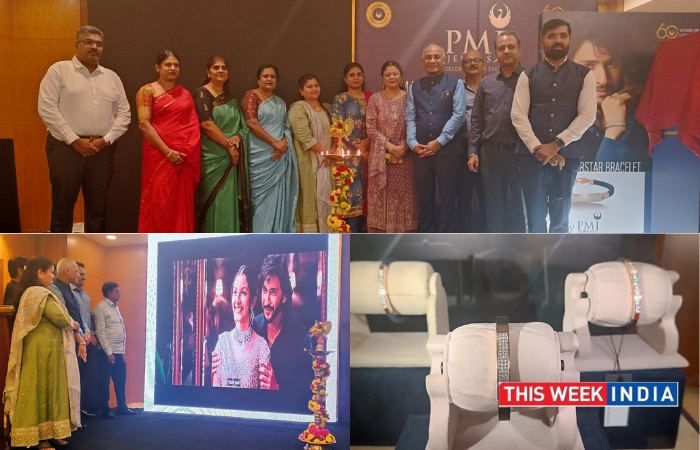Bengaluru, 2022: A 63-year-old mother, Nasreen (Name changed) from Sudan, North Africa, was given a new lease of life by her 28 years old son as a kidney donor at Aster CMI Hospital, Bangalore. She came to Aster CMI Hospital for kidney transplantation with her youngest son as a potential blood group compatible donor. She was suffering from end-stage renal disease and was undergoing hemodialysis for 2 years. For the last few months, the patient was unable to tolerate hemodialysis due to poor cardiac reserve. Kidney transplantation was the only option for her to sustain life.
On evaluation, patients had multiple co-morbidities in the form of low BMI, poor cardiac reserve with an ejection fraction of 35% severe pulmonary arterial hypertension, and restrictive lung disease. Immunological workup revealed positive B cell crossmatch with high titers of antibodies against the donor. Since she did not have any other alternate donor in the family, the doctors decided to go ahead with transplantation after following standard desensitization protocol.
The patient was given standard induction immunosuppression with double filtration plasmapheresis. The patient had an uneventful intraoperative course with good urine output after anastomosis. The patient was monitored closely in the transplant ICU and was discharged after 2 weeks with a serum creatinine of 0.6 mg/dl.
This high-risk transplant was performed by a team of doctors which included Dr. Vidyashankar P, Lead Consultant – Nephrology, Dr. Shashank Shetty, Consultant – Nephrology, Dr. Akila V, Consultant – Nephrology, Dr. Govardhan Reddy, Lead Consultant – Urology & Uro Oncology, Dr. Vinay Patil, Sr. Consultant – Urology, and Dr. Sanjeev S Tonshal, Consultant – Urology.
Commenting on kidney transplantation in highly sensitized patients, said Dr. Vidyashankar P, Lead Consultant – Nephrology, Aster CMI Hospital, said, “Today’s advanced technology has made high-risk kidney transplantation possible. One-third of patients waiting for kidney transplants are HLA-sensitized. Pregnancy, previous organ transplant, and Blood transfusion are risk factors for sensitization. Most of these patients find it difficult to find a compatible living donor or have a long waiting time on the deceased donor list and often have no choice but to spend their lives on dialysis. Desensitization protocols offer a ray of hope to this patient population.”
Talking about the surgery, Dr. Govardhan Reddy, Lead Consultant – Urology & Uro Oncology, Aster CMI Hospital said “Surgery was challenging due to multiple comorbidities and anesthesia-related challenges in the patient. We tried to strike a fine balance between optimal immunosuppression and risk of infections in this patient with our desensitization protocol.”









